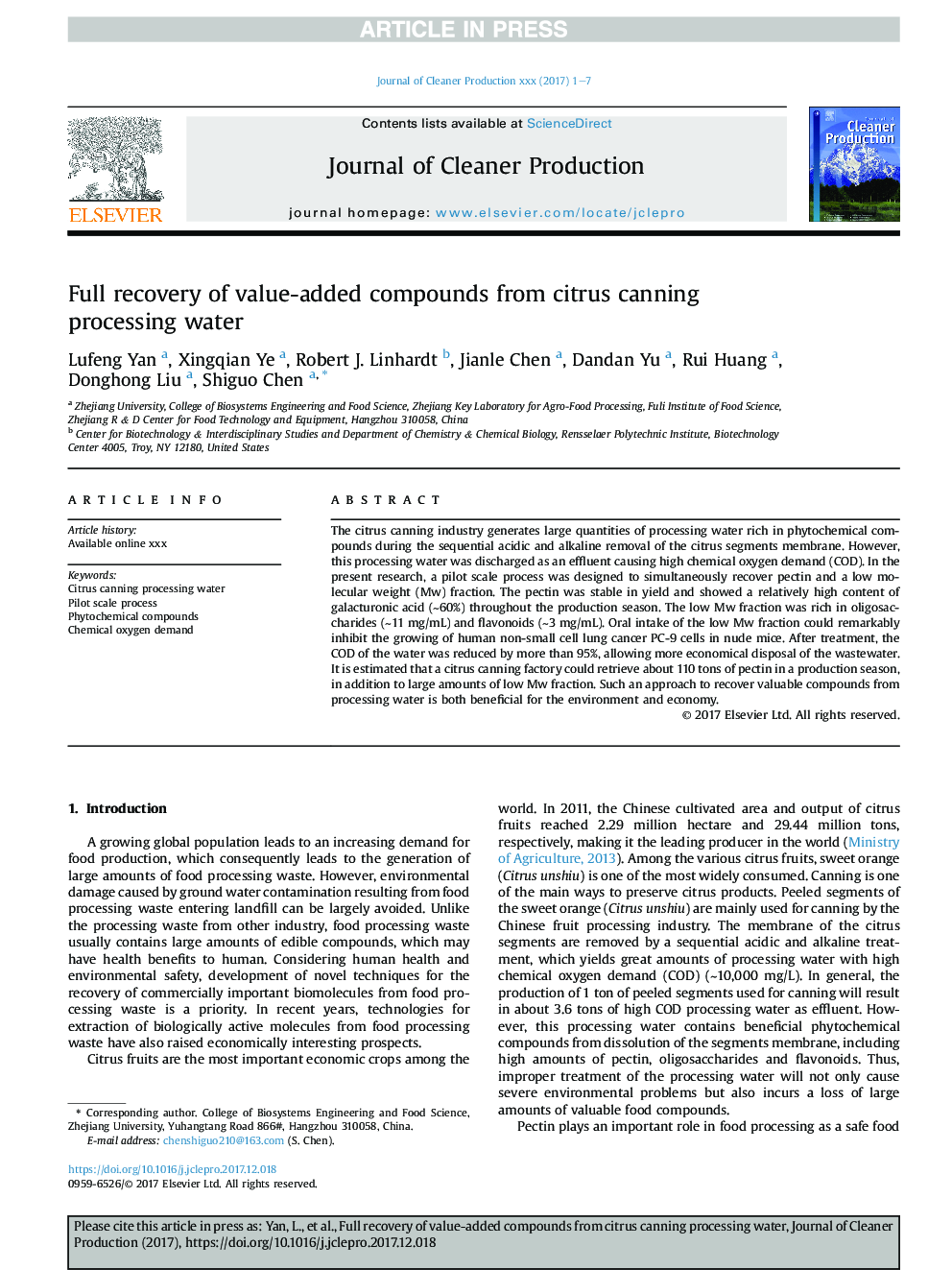| Article ID | Journal | Published Year | Pages | File Type |
|---|---|---|---|---|
| 8099404 | Journal of Cleaner Production | 2018 | 7 Pages |
Abstract
The citrus canning industry generates large quantities of processing water rich in phytochemical compounds during the sequential acidic and alkaline removal of the citrus segments membrane. However, this processing water was discharged as an effluent causing high chemical oxygen demand (COD). In the present research, a pilot scale process was designed to simultaneously recover pectin and a low molecular weight (Mw) fraction. The pectin was stable in yield and showed a relatively high content of galacturonic acid (â¼60%) throughout the production season. The low Mw fraction was rich in oligosaccharides (â¼11Â mg/mL) and flavonoids (â¼3Â mg/mL). Oral intake of the low Mw fraction could remarkably inhibit the growing of human non-small cell lung cancer PC-9Â cells in nude mice. After treatment, the COD of the water was reduced by more than 95%, allowing more economical disposal of the wastewater. It is estimated that a citrus canning factory could retrieve about 110 tons of pectin in a production season, in addition to large amounts of low Mw fraction. Such an approach to recover valuable compounds from processing water is both beneficial for the environment and economy.
Related Topics
Physical Sciences and Engineering
Energy
Renewable Energy, Sustainability and the Environment
Authors
Lufeng Yan, Xingqian Ye, Robert J. Linhardt, Jianle Chen, Dandan Yu, Rui Huang, Donghong Liu, Shiguo Chen,
